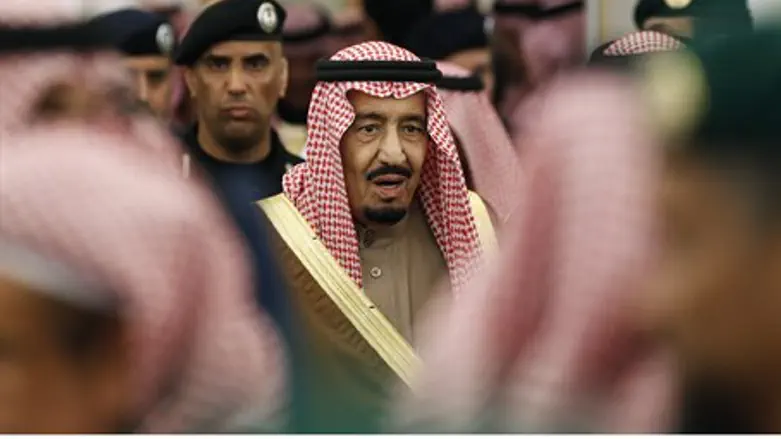
While Israel and Saudi Arabia share security interests, that has not led to bilateral ties, and Dr. Michal Yaari of the Open University, an expert in Saudi political and security affairs, explained to Arutz Sheva why the Saudis refuse to advance ties further.
"There are definitely people who oppose the relationship. For them the issues over Israel’s occupation and the Temple Mount are too much," said Yaari, referring to Israel's presence in Judea and Samaria and on the holiest site in Judaism.
As the custodian of Islam’s two holiest cities – Mecca and Medina – it apparently would seem out of character for Saudi Arabia to be lenient about Israeli control over Jerusalem, which Islam perceives as the third holiest city.
The only way that the Saudis could be more public about any of their connections with the Israelis apparently would not be through an alliance against Iran, but rather in the context of a regional agreement between Israel and her neighbors.
Yaari notes “Saudi Arabia is very limited in what they can do. Things can change in the context of a regional agreement; not a bilateral agreement but a multilateral one.”
Most experts feel the relationship between the two countries on the security side is steady even if well out of the public’s view. In Israel, the rumors of such a relationship tend to offer some excitement. Take for instance Prime Minister Binyamin Netanyahu’s effort to invite Arab ambassadors to his recent Congress address in Washington.
Those invitations apparently were a bit too overreaching, but there was some very public agreement, at least with the ideas expressed in his speech, by Saudi newspapers. That support does not reflect public sentiment giving Israel some benefit of the doubt, but it does show the Saudi government is willing to let a newspaper publish something positive about Netanyahu in order to make a point about Iran.
“Saudi Arabia is very angry with the United States for hurting the Kingdom’s interests: the way it supported Mohammed Morsi and opposed Hosni Mubarak; the way it did not follow through (with military action) against Syria over chemical weapons, and now how it is leaving Iran as a nuclear threshold state," said Yaari.
She notes that the two countries who cannot have open relations with each other are united in their opposition to Tehran and in their agitation with the policies of the US President Barack Obama's administration.
Preparing for the decline of America?
According to Yaari, Saudi Arabia is going to the beat of their own drum right now, but that does not mean Saudi Arabia can really punish the United States when it is so dependent on security ties with them.
“There is no other country that can protect Saudi Arabia like the United States. None. The Saudi experience with the United States recently has been a bad one. They are particularly concerned about America’s power being compromised," she notes. "If the United States were to send more forces to Iraq to fight ISIS (Islamic State), then the Saudis might take American policy more seriously.”
When asked if she thought that was a realistic notion, she said no. She did not dismiss the possibility of such a thing happening in the future, however.
On the question of the Saudis' growing armament – they recently surpassed India as the world’s largest weapons importer – Yaari does not see the weaponry being used to sponsor other groups, but as going to the Saudis themselves.
Regardless of the concern she says the Saudis have for more hostile activity from Yemen and possibly ISIS coming out of Iraq and Syria, she sees this as preparing for a rainy day when they will have to take action for themselves.
For the time being, Saudi Arabia is content to stock up with no plans to send troops over the border tomorrow.
In response to recent reports about Saudi Arabia permitting Israel use of its airspace to attack Iranian nuclear installations, Yaari speculated that such a move would not necessarily spark direct military retaliation from Tehran against Saudi Arabia.
She noted "Saudi Arabia is not particularly concerned about an Iranian attack per se. They are more worried about their reputation.”
“Their primary concern is a Shi'ite bomb that strengthens Iran’s regional aspirations," Yaari explained, pointing out the dangers of allowing Iran to acquire a nuclear weapon.